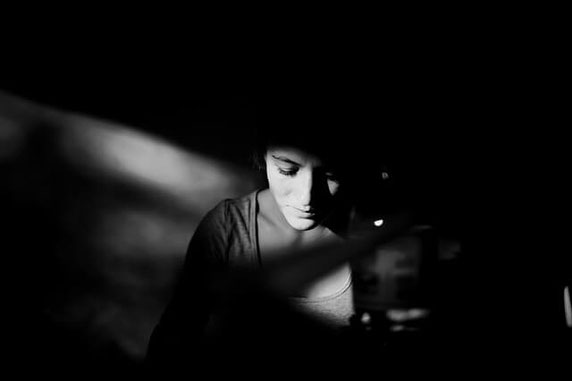CBT FOR POSTNATAL DEPRESSION (PND)
WHAT IS POSTNATAL DEPRESSION (PND)?

Postnatal depression is a type of depression that some women experience after they have had a baby. It usually occurs within one or two months of giving birth. Postnatal depression is quite common, affecting around one in seven mothers. It can be very distressing; the feelings of sadness, irritability and anxiety can be extreme.
Postnatal depression is increasingly referred to as perinatal depression, recognising the fact many expectant mothers become depressed during pregnancy. Around one third of women with PND will have initially experienced depressive symptoms during pregnancy, with these feelings persisting after birth.
HOW IS PND DIFFERENT TO THE 'BABY BLUES'?
Many women experience the ‘baby blues’ shortly after giving birth, feeling sad, anxious, tired and emotional. The baby blues are extremely common, affecting up to 80 per cent of mothers. The baby blues go away on their own, usually within 10 days of the baby being born.
Postnatal depression is different. The feelings experienced are more extreme and can last for months or even years. The severity of the symptoms means that postnatal depression, unlike the baby blues, typically requires treatment. PND is as serious as other types of depression. Without help, more than a quarter of women with PND will still be depressed when the child is one year old. It can spoil the experience of new motherhood and damage a mother’s relationship with her baby and partner.
POSTNATAL DEPRESSION SYMPTOMS

Symptoms of postnatal depression can include:
- Feeling empty, sad or overwhelmed
- Strong feelings of self-loathing
- Excessive anxiety regarding your baby’s health
- Feelings of irritability and restlessness
- Crying for no apparent reason
- Sleeping too much or too little
- Eating too much or too little
- Fatigue or loss of energy
- Feelings of anger or rage
- Persistently doubting your ability to care for your baby
- Having difficulty bonding with your baby
- Feelings of resentment towards your baby
- Having thoughts about harming yourself or your baby
- Feeling you not a good mother or that your baby does not love you
- Feeling unable to cope
- Feeling guilty that you don’t feel the way you expected to feel about your baby.
CAUSES OF POSTNATAL DEPRESSION
There is no one, single cause of postnatal depression. A number of stressors are thought to be contributory factors.
Research suggests you are more at risk of developing PND if you or a family member have previously experienced mental health issues like depression; if you recently experienced a stressful event (for example, a job loss, a relationship breakup, the death of a loved one, etc); if you experienced medical complications during childbirth; if you had mixed feelings about the pregnancy; or if you have not received sufficient support from family or friends.
Having any of the aforementioned problems doesn’t mean you will develop PND. Equally, PND can start for no obvious reason, without any of the above causes.
Idyllic images of motherhood – of endless harmony, radiance and familial togetherness – do not help. Societal notions that portray motherhood as uniquely joyful are unrealistic and unhelpful. “Despite what you see on adverts, the soundtrack isn’t a soft lullaby”, as one young mother wrote in a moving Irish Times article recently (1). Having a baby is an emotional experience that brings many changes and challenges. Often, parents’ strained attempts to deal with these challenges can leave them feeling inadequate and alone.
TREATING POSTNATAL DEPRESSION WITH CBT

Cognitive behavioural therapy (CBT) is commonly regarded as the most effective psychological treatment for depression. Similarly, research shows CBT is very effective in treating postnatal depression.
CBT focuses on the link between our thoughts, moods and actions. The premise of CBT is that when we change our thinking and behaviour, we change our mood. Working together, we will explore how some of your ways of thinking and acting may be contributing to your depression. We will closely examine how to manage the daily problems that can sometimes seem to be insurmountable.
It’s common for a woman with postnatal depression to have many negative automatic thoughts (NATs, as cognitive researchers call them) – about yourself and your abilities as a mother, about the situation you find herself in, about life since the baby, about your future. These negative thoughts lead to negative feelings and behaviours, resulting in a vicious cycle that can be hard to break out of, leading to further feelings of entrapment and hopelessness. CBT aims to help you to break out of this negative cycle through cognitive change (encouraging you to identify and challenge critical, self-sabotaging thinking patterns that make you feel down and unworthy) and behavioural change (engaging in everyday activities that boost mood and self-esteem – activities that give you a sense of pleasure, purpose and closeness).
Living with postnatal depression is daunting and distressing, but it need not be prolonged. The sooner you elicit the right help and support, the sooner you can look forward to recovery and enjoying motherhood.
References
1 – http://www.irishtimes.com/life-and-style/health-family/i-was-a-charging-brutal-half-animal-the-ugly-truth-about-postnatal-rage-1.2950662